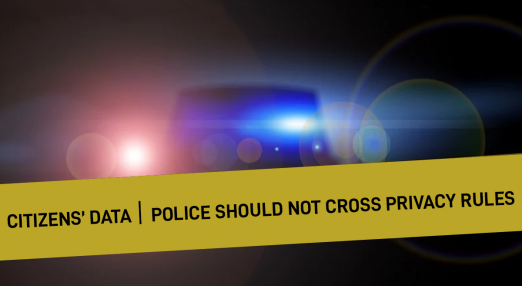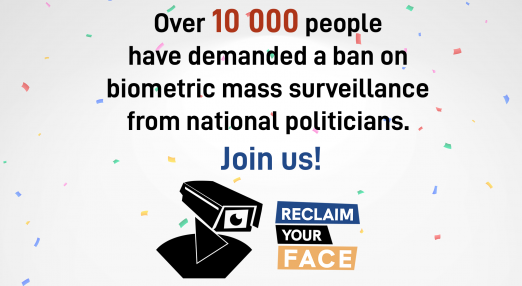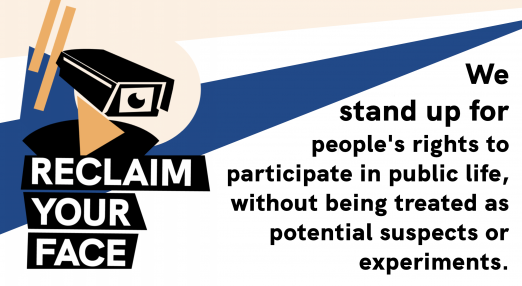bits of freedom
Filter by...
-

Tinkering with keys weakens encryption
Politicians sometimes claim to have the solution to "the problem of encryption". They think encryption is important, but they also want the police to be able to read along. Therefore they propose to "just" add an extra key and "leave the encryption untouched". But is it?
Read more
-

Big-tech lobby sets the rules about big-tech in Europe
The dominance of Google and Facebook is disastrous for the public debate online. We've been saying this for a long time. But this dominance can also be felt in the regulation of the same platforms. Huge amounts of money are spent by big tech to influence European laws and regulations.
Read more
-

How one word took an entire organization off the air
EDRi's member Bits of Freedom cannot share this blog post with their supporters on Facebook. The reason for this: the word "QAnon" appears in it. This single word was all it took to have the Facebook page of The Hmm and that of its three administrators removed.
Read more
-

Washed in blue: living lab Digital Perimeter in Amsterdam
An increasing amount of Dutch government agencies seem to resort to so-called ‘living labs’ and ‘field labs’ in order to test and experiment with technological innovations in a realistic setting. In recent years, these live laboratories have proven to be a useful stepping stone to introduce new technologies into public space. In the last several weeks, EDRi's member Bits of Freedom took a closer look at one of those living labs – the so-called Digital Perimeter surrounding the Johan Cruijff ArenA in Amsterdam – and were not pleased with what they saw.
Read more
-

Four measures to limit the dominance of platforms like YouTube and Facebook
For our public debate, we are far too dependent on the whims of dominant companies such as Google and Facebook. The time is nigh for politicians to step in, and here are four measures they should take.
Read more
-

Anonymity is indispensable
Would an anonymity ban on social media be a good solution to counter all the hatred on these platforms? We were asked this question by a national newspaper in response to such calls. Here is the reaction. of EDRi's member Bits of Freedom.
Read more
-

Everyone wants to encourage encryption, except for one minister
The Department of Justice and Security in the Netherlands seems to be holding on to the idea that it is possible to weaken encryption "just a little". Simultaneously, the parliament and a monster alliance of organizations tells the minister over and over again: it's impossible. EDRi's member Bits of Freedom sheds some light on the on-going debate on the question.
Read more
-

We want more than “symbolic” gestures in response to discriminatory algorithms
In an escalating scandal over child benefits, over 26.000 families were wrongly accused of fraud by the Dutch tax authority. Families were forced to repay tens of thousands of euros, resulting in unemployment, divorces, and families losing their homes. EDRi member Bits of Freedom reveals the discriminatory algorithms used by the authority and urges the government to ban their use and develop legislation on Artificial Intelligence.
Read more
-

When the police’s IT-systems are not in order, everyone loses
Without the trust of citizens, the police cannot do their job properly. That is why it is important that the police are extremely careful with citizens' data. But an analysis by EDRi member Bits of Freedom shows that of all 36 'mission critical' systems of the police, not one complies with the rules on privacy and information security.
Read more
-

Reclaiming faces and public spaces!
The Reclaim Your Face movement is growing, and our demands for transparency, limiting the accepted uses and respect for humans are becoming more and more common across Europe. New organisations are joining the coalition each week, and people across Europe continue to sign the petition to add their voices to our demands. Now, thanks to campaigning by Homo Digitalis in Greece and Bits of Freedom in the Netherlands, we’re getting closer to real political and legislative changes that will protect our faces and our public spaces from biometric mass surveillance.
Read more
-

Campaign “Reclaim Your Face” calls for a Ban on Biometric Mass Surveillance
Civil society across Europe launches the “Reclaim Your Face” campaign, demanding that local and national authorities listen to their communities about the serious risks of using facial recognition and other biometric technologies in public spaces. The newly formed coalition calls to ban biometric mass surveillance, in reaction to the rapid and secretive roll out of invasive and unlawful technologies by police forces and local authorities in many European countries.
Read more
-

Amazon’s Rekognition shows its true colors
EDRi member Bits of Freedom has been investigating the problems associated with the use of facial recognition by the police in the public space. As part of this investigation they wanted to put this technology to the test themselves. How does facial recognition technology really work? Digital tourism On Dam Square, in the center of […]
Read more
